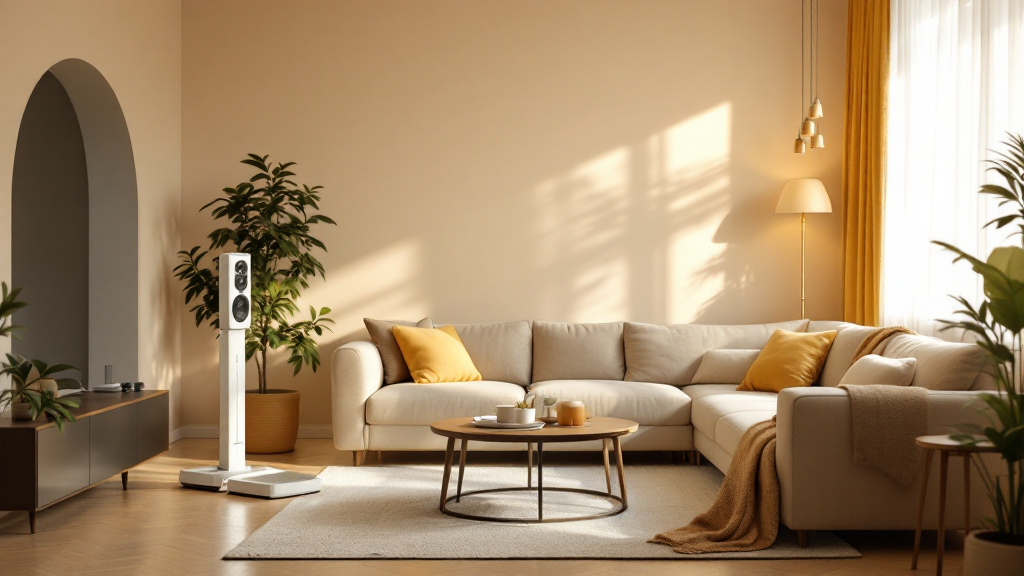Narrow Walkers for Seniors: An Overview
Navigating daily life with stability and confidence is essential for seniors, and this is where narrow walkers play a crucial role in providing the needed support. Designed to be compact and slim, these mobility aids are tailored to offer stability and assistance while navigating through various spaces.

Importance of Narrow Walkers
The significance of narrow walkers for seniors cannot be understated. These specialized mobility aids are crafted to provide the necessary support for individuals with mobility challenges. The slim design of narrow walkers makes them particularly suitable for indoor use, allowing seniors to move through tight hallways and doorways with ease and safety [1]. By enhancing stability and balance, narrow walkers enable seniors to engage in daily activities comfortably, promoting independence and confidence.
Advantages of Narrow Walkers
Narrow walkers offer a range of advantages that cater specifically to the needs of seniors. The compact nature of these walkers makes them ideal for use in crowded or confined spaces, where maneuvering larger mobility aids may be challenging. Seniors can rely on narrow walkers to provide the stability and support needed to move around freely in their homes or in public settings.
When selecting a narrow walker for seniors, it's important to consider key features such as weight capacity, height adjustment, and maneuverability. By prioritizing these aspects, individuals can ensure a proper fit, optimal comfort, and safe usage of the walker. Consulting with a healthcare professional is recommended to receive guidance on choosing the most suitable narrow walker based on individual needs and preferences [1].
As seniors strive to maintain their mobility and independence, the role of narrow walkers becomes indispensable in supporting their daily activities and enhancing their quality of life.
Types of Narrow Walkers
As seniors seek to maintain their independence and mobility, choosing the right type of narrow walker is essential to meet their specific needs. There are several types of narrow walkers available, each designed to cater to different mobility requirements. In this section, we will explore three common types: folding walkers, rollator walkers, and knee scooter walkers.
Folding Walkers
Folding walkers are a popular choice for individuals who require additional support and stability while walking. These walkers provide a sturdy base for walking support and offer foldable capabilities for easy storage and transportation. Folding walkers are known for their durability and reliability, making them well-suited for seniors who need extra assistance with balance and leverage.
One of the key advantages of folding walkers is their adjustable height feature, which allows users to customize the walker to their specific comfort level. The ergonomic design of folding walkers promotes proper posture and reduces strain on the arms and shoulders during use. These walkers are ideal for indoor and outdoor use, providing seniors with the support they need to navigate various environments with ease.
Rollator Walkers
Rollator walkers, also known as rollators, are another popular choice among seniors seeking enhanced mobility. These walkers feature four wheels that offer excellent maneuverability and stability, making them suitable for both indoor and outdoor use. Rollator walkers are equipped with brakes for added safety and control, providing seniors with the confidence to move around independently.
Additionally, many rollator walkers come with convenient features such as seats and storage baskets, allowing seniors to take breaks when needed and carry personal belongings with ease. The versatile design of rollator walkers makes them a practical choice for seniors who prioritize comfort, mobility, and convenience in their daily activities.
Knee Scooter Walkers
For seniors with specific mobility needs or lower leg injuries, knee scooter walkers offer a unique alternative to traditional walkers. These walkers feature a knee platform that allows users to rest their injured leg while propelling themselves forward with the unaffected leg. Knee scooter walkers provide stability and support for individuals with limited mobility, enabling them to move around comfortably while promoting proper healing.
The maneuverability of knee scooter walkers makes them well-suited for navigating tight spaces and uneven terrain. Their compact and lightweight design allows seniors to maintain their active lifestyle and regain independence during the recovery process. By selecting the appropriate type of narrow walker based on their specific needs, seniors can enhance their mobility, stability, and overall quality of life.
Features to Consider
When selecting a narrow walker for seniors, several essential features should be considered to ensure that the walker meets their specific needs. These features play a crucial role in providing stability, comfort, and safety for elderly individuals. The key considerations include:
Weight Capacity and Durability
The weight capacity and durability of a narrow walker are vital factors to consider, particularly for seniors who require extra support and stability while walking. Ensuring that the walker can support the user's weight without compromising its structural integrity is essential in preventing accidents and providing peace of mind. Look for walkers that offer a sturdy construction and a weight capacity that accommodates the user's needs. By prioritizing durability, you can enhance the safety and longevity of the walker.
Height Adjustment and Ergonomics
Adjustable height is another critical feature to look for when choosing a narrow walker for seniors. Proper height adjustment helps maintain the user's posture, reduces the risk of falls, and ensures a comfortable walking experience. Most top-rated walkers offer mechanisms to change the height easily, catering to users of different statures. Ergonomics also play a crucial role in enhancing comfort and reducing strain on the user's body. By selecting a walker with ergonomic handles and design, you can promote proper alignment and reduce the likelihood of discomfort during use.
Maneuverability and Stability
Maneuverability and stability are essential considerations when evaluating narrow walkers for seniors. Features such as swivel wheels and anti-slip tips can significantly enhance the walker's maneuverability, allowing users to navigate different terrains with ease. Swivel wheels provide better mobility and flexibility, while anti-slip tips offer added stability on slippery surfaces. Prioritizing these features can help seniors move around confidently and safely, reducing the risk of slips or falls. Ensure that the walker's design promotes stability and ease of movement to support the user's mobility needs effectively.
By carefully assessing these key features—weight capacity and durability, height adjustment and ergonomics, and maneuverability and stability—you can select a narrow walker that addresses the unique requirements of seniors and promotes safe and comfortable mobility. Consulting with healthcare professionals can also provide valuable guidance in choosing the most suitable option tailored to the individual's specific needs and preferences.
Top Narrow Walkers for Seniors
For seniors in need of mobility assistance, choosing the right narrow walker can greatly enhance their quality of life. Here are five highly recommended narrow walkers that cater to different needs and preferences.
Nitro Euro-Style Rollator Walker
The Nitro Euro-Style Rollator Walker stands out for its versatility and durability. Featuring big wheels and a curb assist feature, this rollator is designed to handle bumps and obstacles with ease, making it suitable for use on uneven ground outside. It provides the senior with stability and confidence during their walks, ensuring a smooth and safe journey. For more information, check out Discover Walking.
Medline Steel Rollator Walker
The Medline Steel Rollator Walker is a sturdy companion for seniors moving around, especially on rough surfaces. Equipped with large wheels and a durable build, this rollator offers stability and support, allowing seniors to navigate various terrains with ease. Its robust construction ensures long-lasting performance, making it a reliable choice for daily use. Learn more at Discover Walking.
Nitro DLX Foldable Rollator Walker
The Nitro DLX Foldable Rollator Walker combines style and functionality in one sleek design. With vibrant color options and practical features such as a sturdy seat, large storage pouch, and adjustable handlebars, this rollator is ideal for seniors who value both aesthetics and performance. Its versatility allows for use on various terrains, from snow to mud, providing seniors with comfort and convenience. For additional insights, refer to Discover Walking.
Medline Heavy Duty Rollator Walker
Seniors requiring a heavy-duty walker will appreciate the Medline Heavy Duty Rollator Walker with Seat. This robust walker can support up to 500 pounds, offering exceptional stability and strength. It is designed to provide comfortable seating and ample storage options, making it a practical and reliable companion for seniors on the move. With its ability to navigate diverse surfaces like grass and ice, this rollator ensures seniors can maintain their independence with confidence. Dive deeper into its features at Discover Walking.
NOVA Traveler 3 Wheel Rollator Walker
The NOVA Traveler 3 Wheel Rollator Walker is a versatile option known for its excellent maneuverability in tight spaces. Equipped with 8" rubber wheels that smoothly navigate over small obstacles, this rollator ensures seniors can move around with ease and convenience. Offering multiple storage options like a tray, zippered pouch, and basket, the NOVA Traveler caters to various needs and preferences, making it a practical choice for seniors seeking both mobility assistance and storage solutions. Find out more insights at Discover Walking.
When selecting a narrow walker for a senior loved one, it's essential to consider their specific needs and lifestyle requirements. Each of these top narrow walkers offers unique features and benefits to accommodate different preferences, ensuring seniors can maintain their independence and mobility with confidence and ease.
Selection and Usage Tips
Ensuring the proper selection and usage of narrow walkers for seniors is essential for their safety and comfort. This section provides valuable insights into consulting healthcare professionals, choosing the right type of walker, and the importance of a proper fit.
Consulting Healthcare Professionals
Before making a decision on a narrow walker, it is highly recommended to consult with healthcare professionals specializing in senior care. Professionals, such as those at Renaissance Home Health Care and reviews from reliable sources like the New York Times Wirecutter, can offer guidance based on the specific needs and preferences of the senior.
Healthcare professionals can assess the individual's mobility requirements, physical condition, and overall health to recommend the most suitable narrow walker. Their expertise can help in choosing a walker that best supports the senior's mobility and enhances their quality of life.
Choosing the Right Type
Selecting the right type of narrow walker is crucial in providing optimal assistance to seniors with mobility issues. Various types of walkers, such as folding walkers, rollator walkers, and knee scooter walkers, cater to different needs and preferences of seniors.
Sources like Renaissance Home Health Care, Monty's Home Medical, and Parent Giving provide valuable insights into the types of walkers available and their respective features.
Understanding the senior's specific mobility requirements and comfort preferences will help in identifying the most suitable walker type. Factors such as stability, maneuverability, and additional features should be considered to ensure the walker meets the senior's individual needs.
Importance of Proper Fit
One of the critical aspects of using a narrow walker is ensuring a proper fit for the senior. A well-fitted walker enhances stability, reduces the risk of falls, and promotes comfortable movement. Both Monty's Home Medical and Parent Giving emphasize the significance of proper fit in walkers for seniors.
When selecting a narrow walker, it is essential to consider the senior's height, weight, and mobility requirements to ensure a customized fit. Adjusting the walker's height and handlebars according to the senior's comfort level can significantly improve their walking experience and overall safety.
By prioritizing consultation with healthcare professionals, choosing the right type of narrow walker, and ensuring a proper fit, caregivers can provide seniors with optimized mobility support that enhances their independence and confidence in daily activities.
Insurance Coverage and Benefits
When considering the 5 best narrow walkers for seniors, it's essential to be aware of the insurance coverage and benefits available to assist in acquiring these mobility aids. Understanding the options for Medicare assistance, coverage from private health insurers, and the overall benefits of walkers for seniors is vital for accessing the necessary resources.
Medicare Assistance
Medicare plays a significant role in providing financial support for seniors in need of mobility aids like walkers or rollators. Medicare can help cover the cost of purchasing or renting a walker if it is prescribed by a doctor enrolled in Medicare and sourced from a durable medical equipment supplier who accepts Medicare [2].
This assistance from Medicare can alleviate the financial burden on seniors and their caregivers while ensuring that they have access to essential equipment for enhancing their mobility and independence. By leveraging Medicare assistance, seniors can obtain high-quality narrow walkers that meet their specific needs and preferences.
Coverage from Private Health Insurers
In addition to Medicare, private health insurers, Medicaid, Flexible Spending Accounts (FSAs), and Health Savings Accounts (HSAs) may offer coverage for walkers or rollators. Private health insurers often provide various options for coverage, depending on the policy and individual needs.
Exploring coverage options from private health insurers can help seniors access the necessary funds to acquire a narrow walker that suits their requirements. By understanding the terms and conditions of their insurance coverage, seniors can make informed decisions regarding the selection and purchase of a walker that best meets their mobility needs.
Benefits of Walkers for Seniors
The benefits of walkers for seniors extend beyond mobility assistance. Approximately one in four Americans aged 65 or older experience falls annually, with a significant percentage sustaining injuries that require medical treatment or limit their activities. Walkers and rollators serve as essential tools in helping older adults and individuals with disabilities maintain independence, prevent falls, and facilitate mobility [2].
By utilizing narrow walkers, seniors can navigate daily activities with increased safety and stability, reducing the risk of falls and subsequent injuries. These mobility aids provide crucial support for older adults, empowering them to move around confidently and engage in various social and physical activities.
Understanding the insurance coverage options and recognizing the significant benefits of walkers for seniors can guide individuals in making informed decisions regarding the acquisition of these essential mobility aids. By leveraging available resources and acknowledging the positive impact of walkers on senior well-being, caregivers and seniors can enhance quality of life and promote independence in daily living.
References
[2]: https://www.nytimes.com/wirecutter/reviews/best-walkers/

The Importance of Safety Assessments in Home Care Services
April 16, 2025
Enhancing Home Care Safety Through Rigorous Assessments

Understanding the Services Covered Under the NHTD Program
April 16, 2025
Exploring the NHTD Program: Empowering Independence Through Medicaid

The Role of Medicaid Consultants in Navigating Complex Systems
April 16, 2025
Navigating the Complex Maze: The Indispensable Role of Medicaid Consultants

How to Build Strong Relationships with Home Care Providers
April 15, 2025
Enhancing Caregiver-Client Relationships for Improved Home Care

The Role of Case Management in Medicaid Home Care Services
April 15, 2025
Navigating Medicaid Home Care: The Essential Role of Case Management

The Role of a Personal Assistant in the CDPAP Model
April 15, 2025
Understanding the Functions and Impact of Personal Assistants in CDPAP



